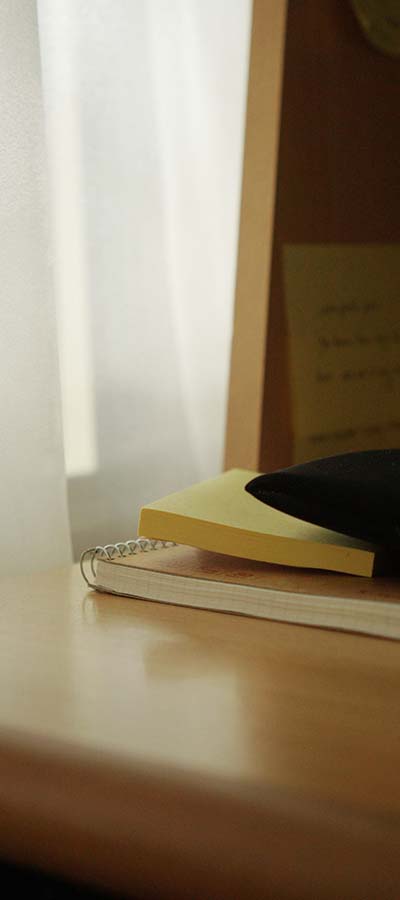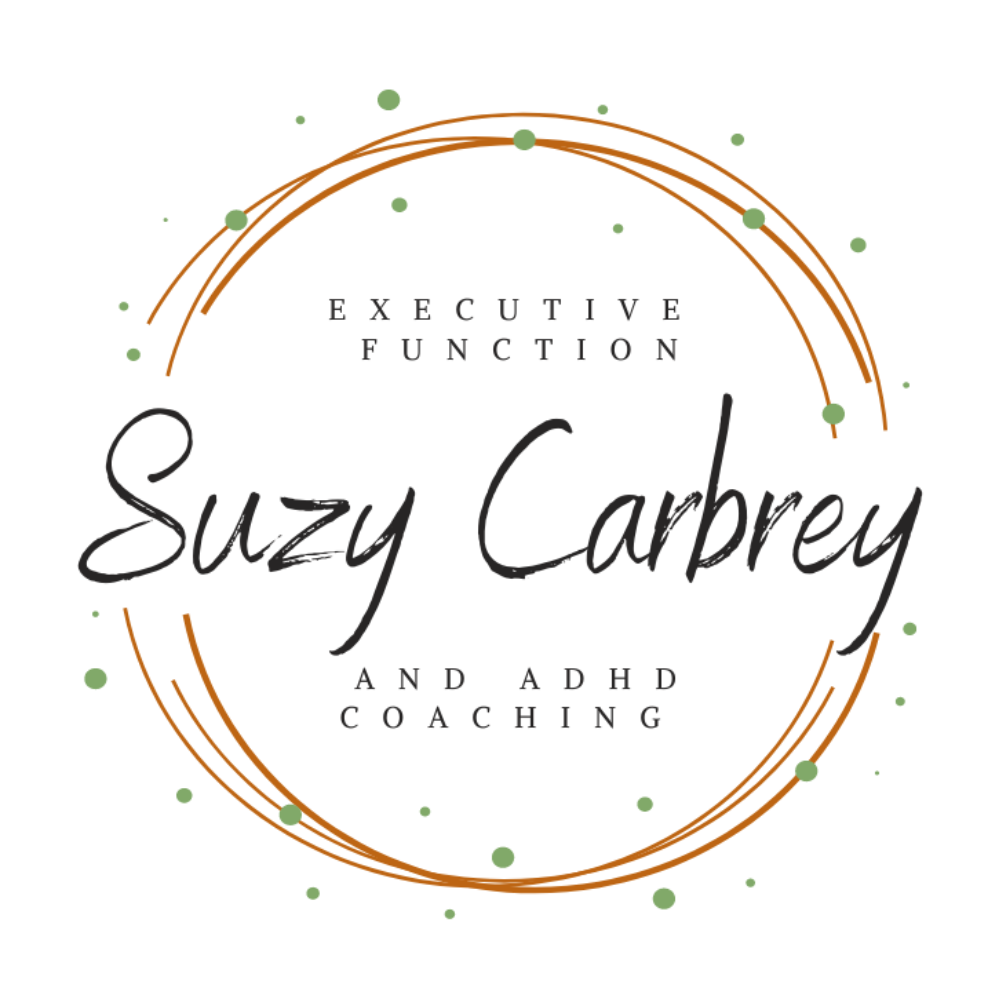Every day, we make thousands of decisions—what to eat, what to wear, when to tackle a task, how to respond to emails, and even which route to take to work. While some of these choices seem small, the cumulative effect of constantly deciding can be mentally draining. This phenomenon, known as decision fatigue, can leave you feeling overwhelmed, exhausted, and unable to focus on what truly matters.
For parents and professionals—especially those with ADHD or executive functioning challenges—decision fatigue is more than just a nuisance. It can lead to procrastination, difficulty prioritizing, and a sense of mental clutter that makes even simple tasks feel insurmountable. When your brain is overloaded with choices, important decisions become harder, and daily life starts to feel chaotic.
But what if you could dramatically reduce the number of decisions you make each day—without sacrificing flexibility or control? Enter the “decide once” strategy: a powerful way to streamline your life, build consistency, and eliminate unnecessary mental strain.
The Power of “Decide Once”
The “decide once” method involves making a single decision about a recurring choice—then sticking with it. Instead of deciding every day what to pack for lunch, which workout to do, or when to schedule deep-focus work, you decide once and turn it into a routine. This small shift can create huge benefits by reducing cognitive load, increasing efficiency, and freeing up mental energy for more important things.
Think of it like automating your decisions—without losing the ability to adjust when needed. The key isn’t rigidity, but intentional simplicity. By creating structured defaults for repetitive decisions, you make daily life easier, reduce mental clutter, and leave more room for creativity, problem-solving, and deep work.
Why "Decide Once" Works for ADHD and Executive Functioning
Executive functioning skills—such as planning, organization, and working memory—are essential for managing daily responsibilities. However, when these skills are constantly taxed by too many choices, decision fatigue sets in.

For individuals with ADHD, decision-making can be especially challenging due to difficulties with:
✔ Prioritization – Struggling to determine which tasks should come first
✔ Working Memory – Forgetting previous decisions and needing to rethink them repeatedly
✔ Mental Energy – Burning out from small, frequent choices before even tackling big tasks
The “decide once” strategy helps by reducing the number of unnecessary decisions, making routines automatic, and minimizing cognitive overload. This approach is particularly effective for:
- Reducing procrastination caused by indecision
- Avoiding mental overwhelm from too many choices
- Building consistency in daily routines
- Freeing up energy for creative and high-impact tasks
By proactively setting up routines and defaults, you remove unnecessary roadblocks and create a system that supports focus, reduces stress, and improves follow-through. The more you can automate small decisions, the more energy you’ll have to invest in what truly matters.
Ready to give it a try? Let’s dive into how you can start using the “decide once” method in your own life.
Practical "Decide Once" Strategies for Parents and Professionals
Here are some practical ways to apply the “decide once” method to different areas of life:
1. Meal Planning & Food Choices
- Themed Dinner Nights: Taco Tuesday, Pasta Thursday, Soup Sunday. By assigning meals to specific days, you eliminate the daily decision of what to cook.
- Go-To Grocery List: Keep a recurring grocery list for staple items so you don’t have to rethink your shopping list every week.
- Same Breakfast or Lunch Daily: Having a standard breakfast (e.g., yogurt and granola) or lunch (e.g., a sandwich or salad) removes unnecessary choices.
- Pre-Decided Takeout: Choose a go-to takeout option for nights when cooking isn’t happening, so you don’t have to waste energy debating where to order from.
2. Clothing & Personal Style
- Workday Uniform: Simplify getting dressed by having a set wardrobe for work (e.g., a specific type of shirt and pants combination).
- Kids’ Outfits: Pre-select outfits for the week on Sundays or stick to a basic mix-and-match system.
- Single Sock Type: Buy all the same type of socks so you never have to match pairs.
- Set Accessories Routine: Always wear the same earrings or watch so you don’t have to decide on small details.

3. Household Chores & Routines
- Laundry Day: Pick a set day for laundry instead of deciding each time.
- Dishwasher Routine: Run it every night, no matter what.
- Bed Sheet Change Schedule: Change sheets on the same day each week so it’s automatic.
- Cleaning Routine: Assign one task per day (e.g., vacuum on Mondays, bathrooms on Tuesdays) to avoid decision paralysis.
- Water Plants Weekly: Pick a fixed day to water all your plants instead of guessing when they need it.
4. Work & Productivity
- Pre-Decided Work Blocks: Schedule deep work sessions at the same time every day to reduce the mental effort of deciding when to focus.
- Standardized Meeting Days: If possible, schedule all meetings on certain days so you have uninterrupted work time on others.
- Recurring Email Check Times: Decide once when you’ll check emails (e.g., 10 AM and 3 PM) instead of reacting to them throughout the day.
- Automated Bill Payments: Set up autopay for recurring bills to remove a repetitive monthly task.
- Fixed Work Start & End Time: Decide on a consistent work schedule to create boundaries and routines.

5. Parenting & Family Life
- Screen Time Cutoff: Set a daily time when all screens are turned off, rather than debating it each day.
- Recurring Family Activities: Saturday morning breakfast outing, Friday night movie night, Sunday evening walk—choose once and make it a tradition.
- Set Bedtime Routine: Follow the same steps every night (e.g., bath, books, bed) so kids (and adults!) know what to expect.
- Pre-Packed Bags: Keep a packed swim bag, sports bag, or diaper bag ready to go so you never have to repack from scratch.
6. Self-Care & Personal Development
- Go-To Relaxation Activity: Whether it’s reading, a bath, or a walk, choose one go-to activity to wind down at the end of the day.
- Default Exercise Time: Pick a fixed time for workouts instead of deciding daily when (or if) you’ll exercise.
- Pre-Set Journal Prompts: Use the same journaling prompts daily so you don’t overthink what to write about.
- Recurring Therapy or Coaching Sessions: Schedule standing appointments so they happen without needing to be rescheduled each time.
Overcoming the Fear of Rigidity
Some people worry that “decide once” strategies will make life feel rigid or boring. However, these decisions actually free up more time and energy for flexibility in other areas. Instead of constantly debating minor choices, you gain the ability to be more present and engaged in what truly matters.
If you find that a “decide once” strategy isn’t working, you can always re-evaluate and adjust. The key is to create a baseline of structure while allowing room for spontaneity where it counts.
How to Follow Through Regularly
Even with the best intentions, maintaining these routines can be challenging. Here are some ways to stay consistent:
- Posting Visual Reminders: Use sticky notes, whiteboards, or digital reminders to reinforce your decisions and keep them top of mind.
- Body Doubling: Completing tasks alongside someone else, even virtually, can enhance focus and accountability.
- Using Accountability Partners: Sharing your commitments with a friend, family member, or coach can provide external motivation to follow through.

Being Flexible When Things Don’t Work Out
Despite careful planning, life happens. If a “decide once” strategy isn’t working, it’s okay to adjust. Some ways to maintain flexibility include:
- Reflecting and Adjusting Seasonally: Life changes with the seasons—both literally and figuratively. What works in summer might not work in winter, and routines may need periodic reassessment.
- Recognizing When It’s Time to Change Decisions: If a routine feels more stressful than helpful, it may be time to shift. Pay attention to frustration points and explore alternatives that better suit your current needs.
Embrace the Power of Deciding Once
The goal of deciding once isn’t about rigidity—it’s about creating ease. When you eliminate repetitive decisions, you free up mental energy for creativity, productivity, and well-being. Instead of getting stuck in daily decision fatigue, you can shift your focus to what truly matters.
Start small. Choose one area of your life where decisions drain your time and energy—maybe it’s setting a go-to breakfast, picking a dedicated laundry day, or deciding in advance when you’ll check emails. Locking in these small choices clears mental clutter, reduces stress, and gives you a greater sense of control.

For parents and professionals managing ADHD and executive functioning challenges, “decide once” strategies can be a game-changer. Simplifying daily routines reduces overwhelm, increases efficiency, and helps you stay present for the moments that matter most. By making small, intentional choices now, you create more space for creativity, connection, and focus.
You don’t have to overhaul everything at once. Just start with one decision today—something simple that will make your life easier tomorrow. With each decision you remove, you’ll feel a little lighter, a little more in control, and a lot more free to focus on what brings you joy and fulfillment.
So, what’s one decision you can make today that will set you up for success? Start there, and let the wins add up—one simple choice at a time.
Learn more with Online Coaching for Executive Functioning / ADHD
Ready to gain control and enhance your executive functioning? As an experienced and compassionate coach, I specialize in providing support for executive functioning and ADHD. To embark on your journey, please reach out to me at 708-264-2899 or email hello@suzycarbrey.com to schedule a FREE 20-minute discovery call consultation.
With a background as a speech-language pathologist, I have a strong foundation in executive functioning coaching. My graduate degree program in SLP placed a significant emphasis on cognition, including executive functions, and I have years of experience in medical rehabilitation, providing cognitive-communication therapy. Additionally, I have completed an ADHD Services Provider certification program, I am Solutions-Focused Brief Therapy Diamond Level 1 certified and I am trained in the Seeing My Time® executive functioning curriculum.
Experience the convenience and effectiveness of online coaching, backed by studies that demonstrate equal results to in-person services. Parents, professionals, and emerging adults love the convenience and privacy of receiving coaching from their own homes.
Whether you reside in Chicago, Milwaukee, Indianapolis, Kansas City, or anywhere else around the globe, I am here to assist you. Schedule your discovery call consultation today, and I eagerly anticipate the opportunity to work with you!
Please note that although I am a certified speech-language pathologist, all services Suzy Carbrey LLC provides are strictly coaching and do not involve clinical evaluation or treatment services. If you require a formal speech therapy evaluation and treatment, please inform me, and I can provide appropriate recommendations.

